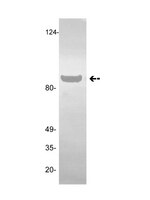Angiostatin and anti-angiogenic therapy in human disease.
Wahl, Miriam L, et al.
Recent Prog. Horm. Res., 59: 73-104 (2004)
2004
显示摘要
Many diseases have abnormal quality and/or quantity of vascularization as a characteristic feature. Cancer cells elicit the growth of new capillaries during neovascularization in a process termed angiogenesis. In diabetics, pathologic angiogenesis in various tissues is a clinical feature of many common complications. Therefore, the diabetic cancer patient warrants special consideration and extra care in the design of anti-angiogenic treatments without adverse side effects. Some treatment regimens that look promising in vitro, in animal models, or in early clinical trials may be contra-indicated for diabetics. This chapter will review the common complications of diabetes, with emphasis on the angiogenic pathology. Recent research related to the mechanism of action and basis for specificity of the anti-angiogenic peptide, angiostatin, will be the focus. The aim is to shed light on areas in which more research is needed with respect to angiostatin and other anti-angiogenic agents and the microenvironmental conditions that affect their activities, in order to develop improved therapeutic strategies for diabetic cancer patients. | 14749498
 |








